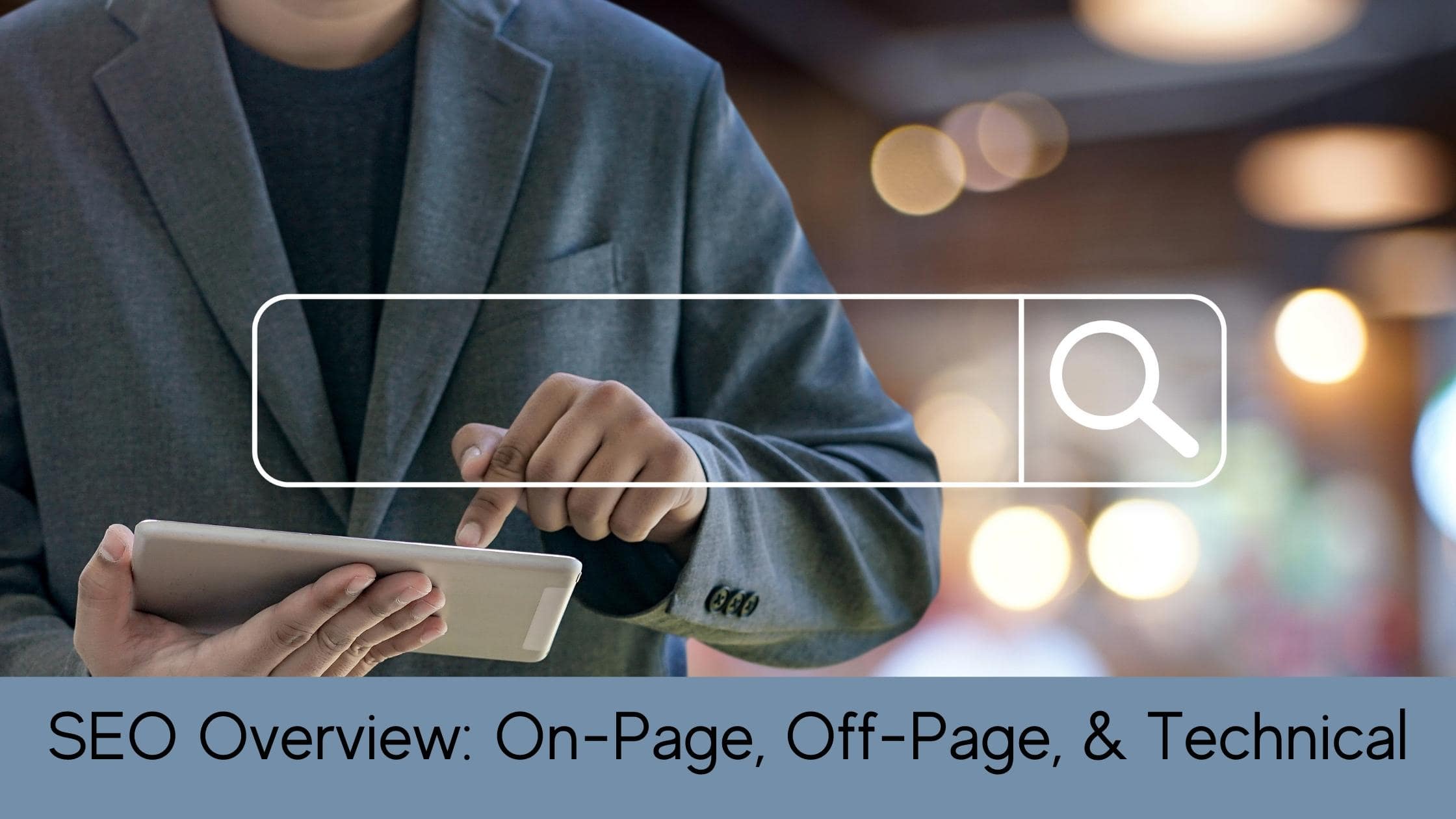Search Engine Optimization is a multi-faceted beast, and it takes a little digging to learn about each aspect. Knowing which SEO strategies your website requires can help you boost your search visibility for target keywords.
In general, SEO is divided into three categories: on-page, off-page, and technical. Let’s take a closer look at each one.
On-Page SEO
One of the most common methods of SEO is on-page optimization. It is the process of optimizing components of your website that you have direct control over.
If you want your website to show in relevant search results, you should use on-page SEO tactics.
As part of on-page SEO, you can improve the following aspects of your website:
- URLs: Each page’s web address should include a relevant keyword and a brief description of its content.
- Title tags: Your title tags should be descriptive and include keywords. They should also persuade readers to click on your articles.
- Meta descriptions: These show below your title in search results and describe the content of your page in roughly 160 characters or fewer.
- Alt tags: These are used to describe the contents of images so that consumers and search engines can better comprehend them.
- Heading tags: Heading tags are used to divide your material into sections and are a great area to put related keywords.
- Internal links: Using links to connect your site’s pages makes it easier for users and search engines to find them. It also aids in increasing the authority of new pages, hence improving their rankings.
- Content: Your website’s content should be relevant and beneficial to your target audience.
- Design: An out-of-date design can drive consumers away from your site, lowering your ranks. Far better to have is a clean, modern, and professional design.
Off-Page SEO
All SEO activities that are applied outside of the website are referred to as off-page SEO. These efforts are typically focused on discovering relevant link opportunities that can be exploited using various SEO strategies and tactics.
The following are examples of off-page SEO:
- Link-building
- Server redirects
- Online Public Relations/Social Media Reputation Management
- Public Relations Outreach
We established that on-page SEO efforts focus on making your material visible to search engines. Still, you’ll need to build relationships with other online institutions to obtain the authority to compete for the most profitable keywords.
Like link-building and social networking, off-page SEO can be far more effective if you develop high-quality, engaging content that solves genuine problems for your users. The quality of the information you link to determines how effective your link-building efforts are.
Press releases, online public relations outreach, collaborations, directory submissions, forum postings, RSS feeds, and social bookmarking can all help you build the backlinks you need for solid SEO referrals and online reputation management.
As we have seen, On-page SEO examines the content of your website (or page), and Off-page SEO examines the authority and popularity of your website. Simply put, on-page factors influence what keywords you will rank for in the search results, while off-page factors dictate how high you rank for these keywords.
But there is another aspect of SEO we haven’t discussed, and that is Technical SEO.
Technical SEO
All SEO actions other than content optimization and link building are referred to as technical SEO. To put it another way, it entails adhering to search engine requirements to improve crawling. To stay up with search engines, which are becoming more sophisticated every day, these standards are continually evolving and becoming more complex.
Technical SEO includes the following elements:
- Efficient code: Bloated, inefficient code slows down the load time and dilutes the code-to-text ratio (on-page content). When we optimize on-page content, Google responds better when the website code is kept to a minimum. Google can better understand a website’s semantic meaning when there is less code on it. This helps with ranking.
- Website speed: A faster website offers a better user experience to its visitors. The loading time for a page should be less than 2.5 seconds. If all other circumstances are equal, Google will favor a quicker website over a slower website since the latter is more likely to give a better user experience.
- Mobile Responsiveness: Websites that aren’t responsive try to fit the complete width of a desktop web page onto a smartphone or tablet. This frequently renders the website unviewable. It’s better to have the website detect the screen size and adapt website elements accordingly.
- SSL/HTTPS: Search engines favor secure websites. Google emphasizes a secure website by ranking HTTPS sites higher than HTTP sites. Thus, a website that is SSL protected (HTTPS) will be ranked higher than one that is not (HTTP).
If you’re looking for an agency that knows their off-page from their on-page, contact us today! We’ll help you rank highly in your local area to get more patients for your healthcare practice.

